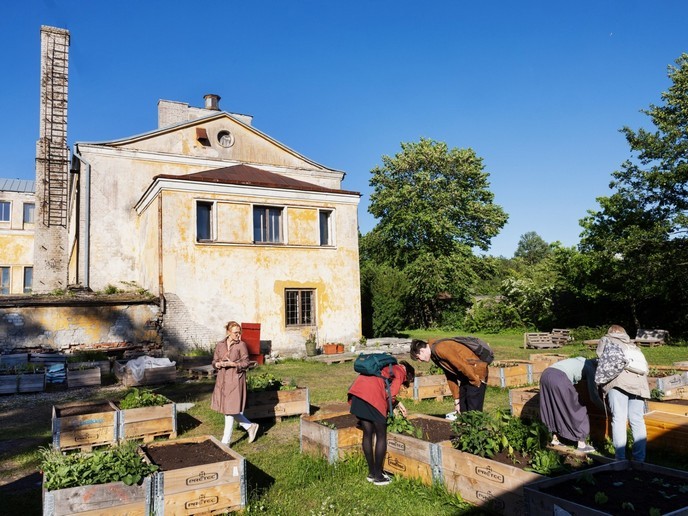Transforming Europe’s industrial past for a sustainable future
Once the birthplace of the industrial revolution, Europe has seen its manufacturing landscape transformed by globalisation. As cities moved towards knowledge economies, once-thriving industrial areas fell into neglect and manufacturing jobs declined. While representing a significant loss for the region, these abandoned industrial spaces also serve as opportunities for revitalisation. The EU-funded CENTRINNO project emerged to address this challenge, reimagining and developing strategies to transform these neglected areas into sustainable and inclusive manufacturing hubs. “The project was built on five key pillars: circular economy, heritage, social inclusion, vocational training and innovation spaces, ensuring that post-industrial sites become dynamic engines for urban transformation,” states Clara Maddalena Callegaris, CENTRINNO project coordinator.
Revitalising urban manufacturing
CENTRINNO fostered new models of urban manufacturing that supported ecological resilience and local economies. It mapped urban resources, skills and materials to support new forms of local production, connecting tradition and innovation. The project engaged local communities, creative professionals and educational institutions to empower individuals with new skills as well as strengthen the cultural fabric of neighbourhoods. It also promoted collaborative decision-making and sustainable entrepreneurship. CENTRINNO pursued these goals across nine European pilot cities – Amsterdam, Barcelona, Blönduós, Copenhagen, Geneva, Milan, Paris, Tallin and Zagreb. It tested different models of Fab City Hubs – spaces for collaboration, innovation and community-driven initiatives – rooted in the Fab City global initiative, a movement focused on transforming urban industrial systems for a sustainable future.
Success stories
In Tallinn, the Kopli Peninsula – once home to cotton production, chemical manufacturing and shipbuilding – saw the transformation of an old cultural centre into a Fab City Hub. The site now features community gardens, a public maker space and an apiary, promoting urban resilience and biodiversity. The centre was included in Tallinn’s official circular economy network and the city has pledged to secure funding for a full restoration of the building. Meanwhile, in Milan, CENTRINNO took a distributed approach, gathering the urban community of makers and circular economy actors in BASE, a historic factory located in the fashion-centric Tortona district. The venue hosted key events such as Milano Circolare, bringing together experts to shape the future of circular fashion. It became a central point for the Manifattura Milano digital platform, designed to connect artisans, designers and manufacturers by promoting knowledge exchange for sustainable fashion. Additionally, the pilot launched Circular Urban Paths, a vocational training programme teaching sustainable manufacturing techniques. CENTRINNO’s impact extended beyond spatial transformation, fostering sustainable business models. “The project directly facilitated the creation of 99 new businesses and 299 job opportunities, embedding entrepreneurship within the Fab City Hubs,” says Callegaris.
Building a sustainable future
The project has developed five key resources: the Fab City Hubs Toolkit; CENTRINNO Cartography, to guide communities in mapping local skills and resources for circular economies; Living Archive, an open access platform to promote post-industrial heritage; CENTRINNO School, to develop educational programmes on circular and digital manufacturing; and CENTRINNO Network, to facilitate socially inclusive communities. As the world faces technological advancements and geopolitical challenges, CENTRINNO’s approach remains relevant. “The project has demonstrated how Fab City Hubs can foster local resilience, circular production and knowledge-sharing, crucial as AI reshapes labour markets and supply chains,” adds Callegaris. By promoting localised manufacturing and strengthening regional supply chains, the project offers a model for economic resilience in times of trade disruptions.
Keywords
CENTRINNO, circular economy, urban manufacturing, entrepreneurship, sustainability, social inclusion



